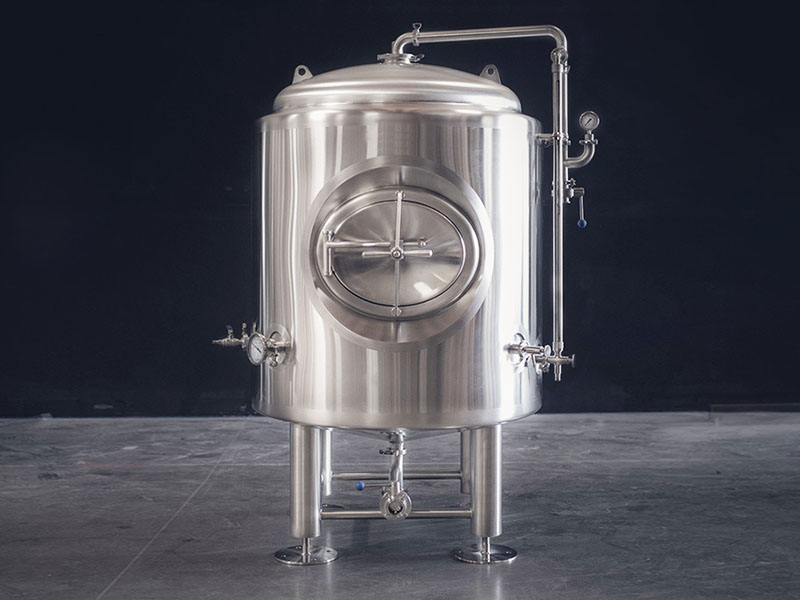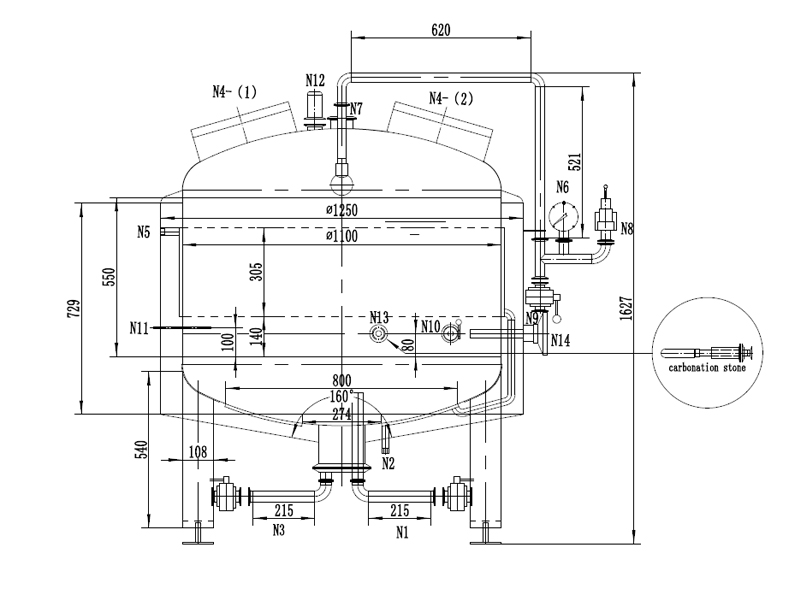Kombucha Brewing Equipment
Reduce alcohol & ferment faster
Brewing Kombucha
While Kombucha has been around for thousands of years, it has only gained momentum in recent years. The world is waking up to the health benefits of this tangy pro-biotic beverage. With a growing trend of people wanting to be healty, and consume organic products, there is no better time than now to get into the business of brewing Kombucha. The time is right to start formulating a plan to scale and grow your commercial kombucha business.
Ferment the Healthiest Kombucha Possible
Our kombucha brewing equipment is specifically designed to ferment the healthiest kombucha possible. Brew kombucha batches large enough to bring the healthy pro-biotic benefits to more people. Brewing kombucha is not easy. Fermenting with both yeast and bacteria in symbiosis is complicated. The bacteria in your SCOBY require oxygen. The yeast don’t. Different bacteria are more active and productive at different temperatures. Favoring some strains over others can change the flavor and complexion of your kombucha.

Benefits of using our Kombucha Fermenters?
Our kombucha fermenters are designed to provide you with a range of options to control the temperature in your kombucha system from start to finish, including electric, direct fire and steam boiling systems. We can also design a glycol cooling system to keep your kombucha at the perfect temperature through all stages of fermentation no matter what the climate does. You can specify an infusion system to flavor your kombucha with botanicals or fruits to provide the perfect finish. Our brite tanks will allow you to carbonate without creating the wrong alcohol by volume.- They are commercial grade, capable of brewing large batches.
- They are made from premium quality 304 stainless steel.
- The sanitary welds and connections help keep out the bad bacteria.
- Our temperature control systems provide the perfect environment for healthy tanks.
- We have a dedicated customer support team that will be with you every step of the way.
1Why should I brew using stainless steel?
Brewing kombucha on a large scale requires more precision than the traditional mason jar wrapped in a towel approach. The cleanest, easiest, and most precise way to brew kombucha is using a stainless steel brewing system. Using our Tanks and Kettles brewing systems mean that your product will be kept clean and secure, producing a better quality product. With the right fermenter, you’ll be able to improve your kombucha quickly and take your business to the next level.
2Why isn’t my kombucha fizzy?
Kombucha doesn’t become fizzy until the CO2 from the SCOBY’s yeast is trapped. Once your kombucha has reached the right balance taste wise, it can be bottled and will then develop a fizzy quality during its second, in-bottle fermentation. Be careful if you choose to use secondary fermentation in the bottle. Two things can go drastically wrong. First, if you have too much fermentation in the bottle, carbon dioxide can cause too much pressure, causing the bottle to break. Bottle bombs are not good for your brand. Second, too much fermentation can increase the alcohol by volume (ABV) of your Kombucha.
The best way to carbonate Kombucha is in a brite Tank. Our brite tanks are designed to hold more than twice the atmospheric pressure. You can use a carb stone to infuse your kombucha with clean pure CO2 until you have exactly the right fizz, with none of the bottle bombs or illegal ABV numbers.
The best way to carbonate Kombucha is in a brite Tank. Our brite tanks are designed to hold more than twice the atmospheric pressure. You can use a carb stone to infuse your kombucha with clean pure CO2 until you have exactly the right fizz, with none of the bottle bombs or illegal ABV numbers.
3I think my kombucha is molding. How can I tell?
Mold is a big concern for kombucha brewers, and rightly so. Fortunately, preventing and spotting it is easy. If temperatures drop too low or there isn’t enough sugar or tea, mold can form, so make sure you’re using at least one cup of sugar and 12 grams of tea per gallon.
4How do I know how alcoholic my kombucha is?
Using an alcohol meter will help you ensure your kombucha is safe to be sold at a non-alcoholic level. If your kombucha ends up being higher than 0.5% ABV in the United States, it is subject to the Alcohol and Tobacco Trade and Tax Bureau, which falls under the US Department of Treasury laws.
